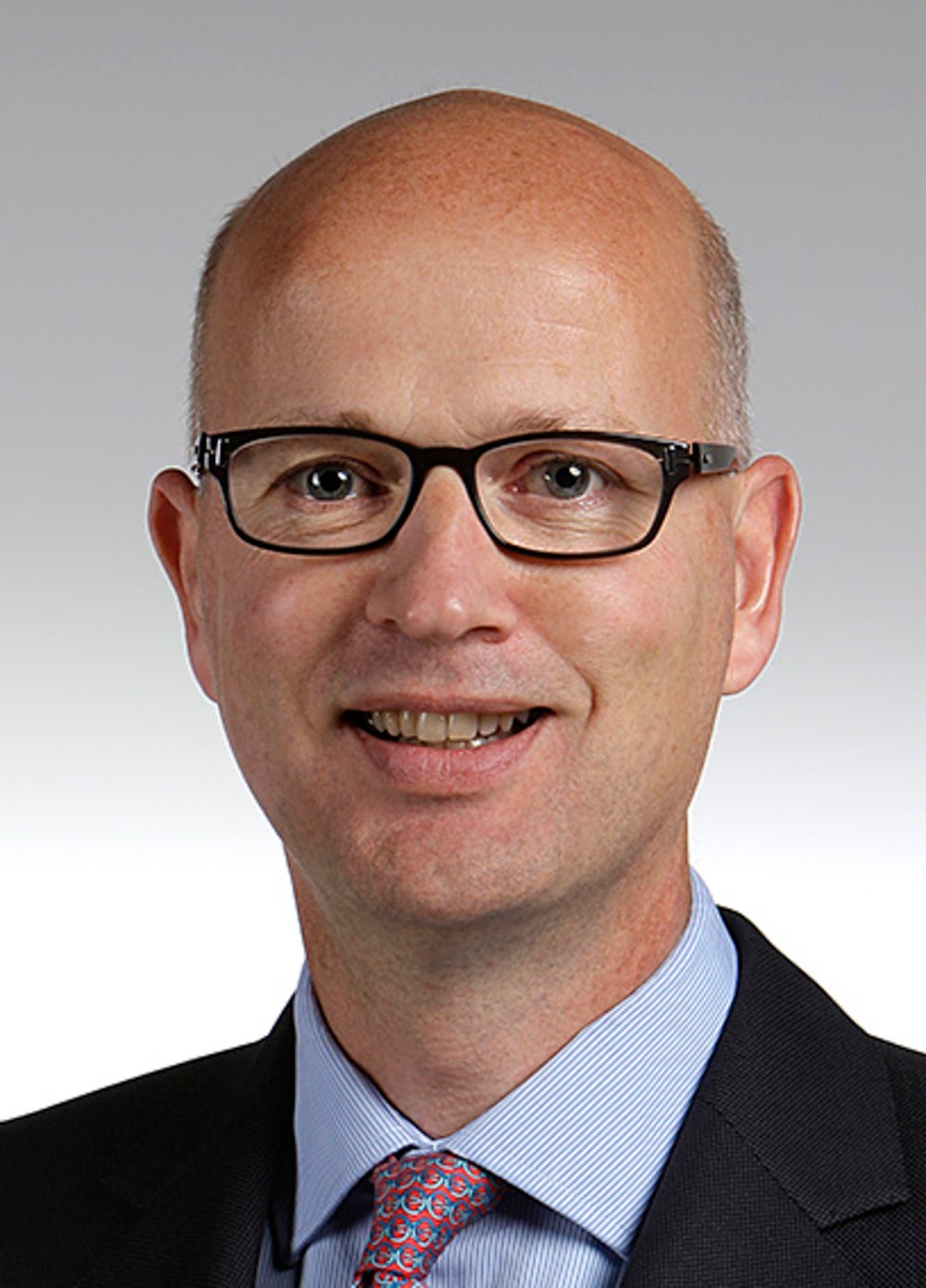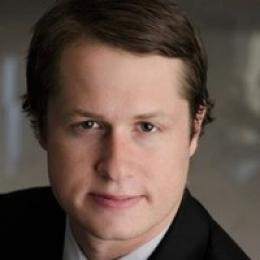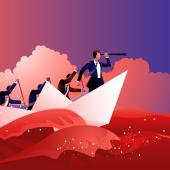
Hergen Haas
GENERAL COUNSEL
HERAEUS
HANAU, GERMANY
Since the 1600s, Hanau has been a destination for those seeking the latest technology. Located 25 kilometers upriver from Frankfurt am Main, the small town was renown for its apothecaries, goldsmiths, and other metal workers. Nobles from around Europe would send their emissaries to have gold and jewelry shaped by its guild workers.
From that legacy emerged a pharmacist and chemist named Wilhelm Carl Heraeus, for whom the present-day company, one of the oldest family-owned companies in Germany, is named. He managed his father’s pharmacy in 1851 and worked with goldsmiths to melt platinum, which had a melting point of 1769 degrees Celsius and was in demand for fine jewelry. Using an oxyhydrogen gas flame, he melted two kilograms of platinum, and Germany’s first platinum melting house was born. More than a jewelry metal, platinum is a fundamental part of the industrialization process because the instruments needed to melt steel are made from the material.
Now the company with a history that spans hundreds of years is looking toward the future and its possibilities.
Heraeus still refines platinum and many other fine metals and creates products with these metals for clients around the world. It also provides solutions for steel mills to measure the carbon and oxygen content as well as temperature, and therefore the quality, of the molten steel.
Its business has expanded to include quartz glass, both synthetic and natural. The company makes preforms for glass fiber cables, the basic infrastructure for the internet. Additionally, the production environment in the semiconductor industries requires specific quartz glass components that Heraeus produces. Bone cement, used for hip replacements and other surgical needs, is another business. Other high-quality healthcare materials, like guide wires and pacemaker parts, are produced by Heraeus because platinum is biocompatible.
Another Heraeus business unit involves specialty light sources. Anything from UV to infrared light has different industrial uses. Light sources can remove bacteria from rich milk or show fatty residue in professional kitchens. Photovoltaics is another key unit for the ever-adapting company, and the company holds a strong market position in Asia. Furthermore, Heraeus produces electronic products for both consumer and automotive industries. Another business unit deals with emerging trends like sensors for electronic applications and with conductive polymers.
But the backbone of Heraeus is rooted in its origin: precious metals. The company is a world leader in metals, including platinum, gold, silver, and rhodium.
“I may have forgotten some businesses, but those are the main ones,” Haas clarifies.
His legal department includes 64 people, with about half of those being lawyers or patent attorneys. According to Haas, the department has three functions: (1) to deliver service solutions; (2) to ascertain and manage risk and opportunity; and (3) to maintain governance.
Naturally, patents figure prominently into the business strategy, and Haas’ legal department involves itself more and more in strategic discussions to be able to focus on patents that deliver business solutions. Efficiency in the “patent production process” also becomes more important. “You need to find the right balance between standardization, on the one hand side, because you cannot have 20 different processes,” he says. Streamlining processes is one thing — making them leaner, more sensible, and more aligned — but because Heraeus’ business lines are so different, and the jurisdictions so varied, it’s impossible (and also not sensible) to standardize them all.
The key, Haas says, is to embed with the business. When he first took over the legal department, it operated like an external team. His first challenge was integrating them into the business. “In essence, we started a charm offensive,” he explains. They never turned down a request and would try to help whenever they could. It was a necessary endeavor not to be seen as a bureaucratic outpost.
Haas likes to use a metaphor to describe how the team used to function. “As staff functions, the business was a boat, and it was on a rough river, and the legal function was standing on the shore, shouting great ideas of what to do,” he says. Now, the legal department is on the boat — “with all the upsides and downsides that come with it.” When you’re on the boat, you realize the world is not perfect, the way it looks from a distance. The only way to see and feel the risk is to be up close.
Heraeus’ patent team is based in its German headquarters, but it also employs a patent attorney in the United States and a patent expert in China. Patent strategy is a big focus of the team: Which patent to file, and where? Once a year the patent team has a patent strategy day for each of the business units. Legal needs to understand the business goals while also trying to “steer” the boat in a more streamlined or standardized direction. “We are trying to educate the management team and show them how relevant the tools are that we can use,” Haas says. In the end, patent law is really just an extension of the business.
While the backbone of the legal department is dedicated to business solutions, his team also works on other issues. The M&A team is small and strategic. The responsibility office handles antitrust, bribery, and corruption. And recently, they have added a “D” to the “ABC compliance”: data protection. In addition, it assumes responsibility for how other line organizations manage to organize compliance with rules, such as in the areas of environmental health and safety and also in the supply chain.
Haas has already started to achieve his goal: the integration of the legal department into the overall business. “However, integration will never be achieved, it’s a constant journey,” he adds.
360 degrees of possibilities
Haas was born in Oldenburg, a small village close to the North Sea. His banker father worked for a mittelstand, or medium-sized bank, and his mother was a pharmacist. His first memory is from the area around Dusseldorf where he spent his childhood. Along with his brothers and sisters, he spent a lot of time outside. As an adolescent, he was mainly interested in sports and wasn’t attracted to one career path over another. “When I finished school, I had 360 degrees of possibilities,” he remembers. “I was told, ‘Just find out what is good for you’ — not an easy task as a young person.”
At the time in West Germany, recent graduates were required to perform military or social service after graduation. Haas enjoyed his time in the military and decided to continue on the path, with the ambition to become a reserve officer. As part of the training, he went to class to study laws relating to the profession. His marks on an examination were good enough for the teacher to comment on his aptitude. The gentle encouragement was enough to motivate Haas to study law.
His legal studies took him around West Germany, first to the south, where he studied at the University of Passau in Bavaria and later to Berlin, where he finished his studies while starting work. He initially offered legal advice to a few select clients, including a local bartender. The bartender’s primary challenge was securing financing for his restaurant. This led Haas to research subsidies and how to procure resources for small businesses. Later, after he had learned the basics, he saw an ad from Bruckhaus Westrick Stegemann, back then a leading law firm in Germany, which was seeking a lawyer with experience in financing. He interviewed and started his “serious” legal career there.
As Haas worked in the financing world those first years, he always felt he was balancing on a narrow fence, separated between the legal and commercial worlds. Some days he would fall on one side, some days the other side. He decided to see if he really liked the world of finance and joined a small venture capital firm. “That was where I quickly realized I was a lawyer,” he says, laughing. From that time on, he knew he wanted to go back working at a small firm.
In 2001, together with two other founders, he started a firm that focused on venture capital, M&A, and financing. But in 2009, the economy tanked. “I would say for at least six months, there was almost no business for me,” Haas remembers.
Yet at the same time, his personal life was very rewarding. He has four children, and his youngest son was born in 2009. The lack of work allowed him to spend time with him, and Haas had an epiphany: “I was doing what I loved, but then I realized that it’s also rewarding if you spend a certain amount of your resources in other areas of life. That is something that made me start thinking about what I wanted to do going forward,” he reflects.
Jan Rinnert, now the CEO of Heraeus, approached Haas and asked him to meet the management team of the company. Afterward, they asked if he wanted to lead the legal department. Haas says he has found a nice equilibrium: He works hard during the week but generally has the weekends to master his other roles of husband and father.
Haas is no longer slipping from one side of business — or life — to the other. He is in equilibrium and enjoying it.
Getting to know… Hergen Hass
WHAT DO YOU DO ON A WEEKEND?
Firstly, I spend time with my family and do whatever. Family is the focus. I may watch a football game with my son or go for a bike ride. In the morning, I get up very early and listen to a book for about an hour while doing sports. I enjoy that a lot; the quality time to myself. In the evening, I may meet friends or go out for dinner with my wife. Really, nothing spectacular but very enjoyable.
WHO IS YOUR FAVORITE FOOTBALL TEAM?
Currently, it’s Eintracht Frankfurt. Traditionally it was not Eintracht. I’ve been living here now for 20 years, and that’s why I keep my fingers crossed for them. When I was young, I lived in Dusseldorf and was fond of Fortuna Dusseldorf. Now I’m living here for 20 years and a fan of Eintracht Frankfurt. A real fan would never switch teams and would say, “This is so opportunistic; you are not a real fan.”
WHAT BOOK ARE YOU LISTENING TO RIGHT NOW?
Currently, for the second time, because I liked it so much, I’m listening to Bill Bryson’s A Short History of Private Life. Homo Deus from Yuval Noah Harari is another one I enjoyed a lot. It’s about our future as Homo sapiens. Our predecessors were Homo erectus. The next one is, according to Harari, going to be Homo deus. He fantastically lays out different potential futures and makes it clear that it’s our decision as mankind to think about what we actually want to be going forward. Everything we are observing in the business environment, like digitalization, is part of it. It’s a very fascinating book.




